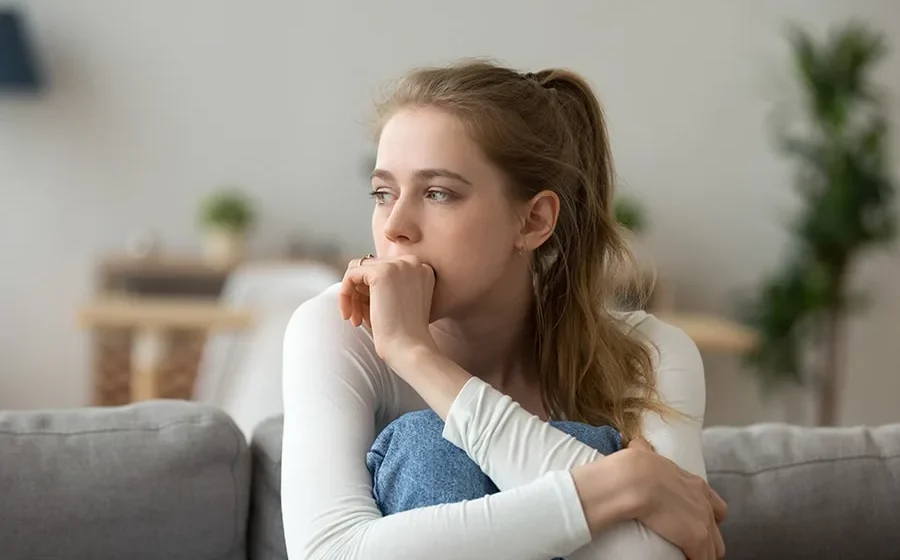Anxiety is a natural response to stress, but for many people, it becomes a constant, overwhelming presence that interferes with daily life. Whether it manifests as general anxiety, social anxiety, panic attacks, or other forms, chronic anxiety can significantly impact an individual’s physical and mental health. While therapy and medication are common treatments for anxiety, lifestyle choices play a crucial role in both managing and alleviating its symptoms. By making intentional, positive changes in daily habits and behaviors, individuals can reduce the frequency and severity of anxiety, improve overall well-being, and foster long-term mental health resilience.
1. Physical Activity and Exercise
Regular physical activity is one of the most effective lifestyle changes to reduce anxiety. Exercise has been shown to have a profound impact on mental health by promoting the release of endorphins, often referred to as “feel-good” hormones. These chemicals help to elevate mood, reduce stress, and improve feelings of well-being. Physical activity also lowers levels of cortisol, the body’s stress hormone, which can help prevent anxiety from escalating.
Research has demonstrated that aerobic exercises like running, swimming, or cycling can have significant anxiety-reducing effects. For those who may not enjoy vigorous exercise, even mild activities like walking, yoga, or tai chi can be beneficial. Exercise helps to regulate the nervous system, promoting relaxation and reducing the physical symptoms of anxiety, such as muscle tension and rapid heart rate.
Moreover, regular exercise improves sleep quality, which is often disrupted in people with anxiety. Better sleep is critical for emotional regulation, as inadequate rest can exacerbate feelings of anxiety. By incorporating a consistent exercise routine into daily life, individuals can see a noticeable reduction in anxiety symptoms.
2. Healthy Nutrition and Diet
The foods we consume have a direct impact on our physical and mental health. A balanced diet rich in nutrients can support brain function, stabilize mood, and regulate the body’s stress response. In contrast, poor dietary habits, such as consuming excessive amounts of caffeine, sugar, or processed foods, can contribute to anxiety and exacerbate its symptoms.
Caffeine, for instance, is a stimulant that can mimic symptoms of anxiety, such as increased heart rate, jitteriness, and nervousness. Reducing caffeine intake, especially in the afternoon and evening, can help prevent these symptoms from interfering with daily functioning. Similarly, high-sugar and highly processed foods can cause blood sugar fluctuations, leading to irritability and heightened anxiety. Instead, consuming complex carbohydrates, lean proteins, and foods rich in omega-3 fatty acids (like fish, flaxseeds, and walnuts) can help promote stable blood sugar levels and reduce the intensity of anxiety.
Additionally, certain nutrients play a key role in supporting mental health. Magnesium, for example, has been shown to have a calming effect on the nervous system, and foods like spinach, almonds, and avocados are excellent sources of magnesium. B vitamins, particularly B6 and B12, are important for neurotransmitter regulation, and a deficiency in these vitamins can lead to mood disturbances and anxiety. A well-rounded diet that supports brain health can therefore be an essential tool in managing anxiety.
3. Mindfulness and Meditation
Mindfulness practices, such as meditation, breathing exercises, and mindful movement (like yoga), have been proven to help alleviate anxiety. These techniques encourage a state of present-moment awareness, which helps individuals detach from the worries and fears that often fuel anxious thoughts. By practicing mindfulness, individuals can learn to observe their thoughts without judgment, allowing them to separate from negative thinking patterns that often lead to heightened anxiety.
Meditation, specifically, has been shown to reduce the activity of the amygdala, the part of the brain responsible for processing fear and stress. Regular meditation practice can help individuals cultivate a greater sense of calm and emotional stability. Similarly, breathing exercises, such as deep belly breathing or diaphragmatic breathing, activate the parasympathetic nervous system, which counteracts the fight-or-flight response and promotes relaxation.
Incorporating mindfulness into daily routines doesn’t require a significant time commitment. Even just a few minutes of focused breathing or a short meditation session can be beneficial for reducing anxiety levels and preventing stress from accumulating throughout the day.
4. Sleep Hygiene
Quality sleep is essential for mental health, and poor sleep is strongly linked to increased anxiety. When the body is well-rested, it is better equipped to manage stress and regulate emotions. On the other hand, insufficient or disrupted sleep can exacerbate anxiety by impairing cognitive function, mood, and decision-making abilities.
Practicing good sleep hygiene is one of the most effective lifestyle changes for anxiety relief. Establishing a regular sleep schedule, aiming for 7-9 hours of sleep per night, and creating a relaxing bedtime routine can improve sleep quality. Limiting screen time before bed, avoiding caffeine in the evening, and creating a cool, dark, and quiet sleep environment all contribute to better sleep. If anxiety interferes with sleep, relaxation techniques, such as progressive muscle relaxation or gentle stretching, can help calm the body and prepare it for rest.
In cases where anxiety leads to insomnia, cognitive-behavioral therapy for insomnia (CBT-I) may be particularly useful. This therapy focuses on addressing the negative thoughts and behaviors that contribute to poor sleep and can help individuals establish healthier sleep habits.
5. Social Connections and Support
Strong social support is one of the most protective factors against anxiety. Having a network of family members, friends, or supportive communities can provide a sense of belonging, reduce isolation, and offer emotional comfort during times of stress. Engaging in positive social interactions has been shown to increase levels of oxytocin, a hormone that promotes bonding and relaxation, while simultaneously reducing cortisol levels.
On the other hand, social isolation can worsen anxiety symptoms, creating a cycle of withdrawal and increased worry. It’s important to maintain meaningful relationships and seek out support when needed. Whether through regular social outings, participating in group activities, or joining support groups for anxiety, maintaining a healthy social life can be instrumental in reducing feelings of anxiety.
6. Time Management and Stress Reduction
For many people, chronic anxiety stems from feeling overwhelmed by responsibilities, deadlines, or a lack of control over their lives. Effective time management can help alleviate some of this stress by creating a sense of structure and predictability. Breaking down large tasks into smaller, more manageable steps, setting realistic goals, and prioritizing important activities can help reduce feelings of being overwhelmed.
In addition to time management, finding ways to incorporate relaxation into daily life is vital. Engaging in hobbies, spending time outdoors, practicing creative outlets, or simply taking time to relax can help lower stress levels and prevent anxiety from building up. Scheduling regular breaks throughout the day and making time for self-care activities are essential to maintaining mental health.
Summary
Lifestyle choices play a significant role in anxiety relief by addressing both the physical and mental aspects of the condition. Regular physical activity, a balanced diet, mindfulness practices, quality sleep, social support, and effective time management can all contribute to reducing anxiety and improving overall well-being. While lifestyle changes alone may not replace professional treatment, they are an integral part of a comprehensive approach to managing anxiety. By making intentional choices that promote mental and physical health, individuals can build resilience, reduce anxiety, and lead more fulfilling lives.


